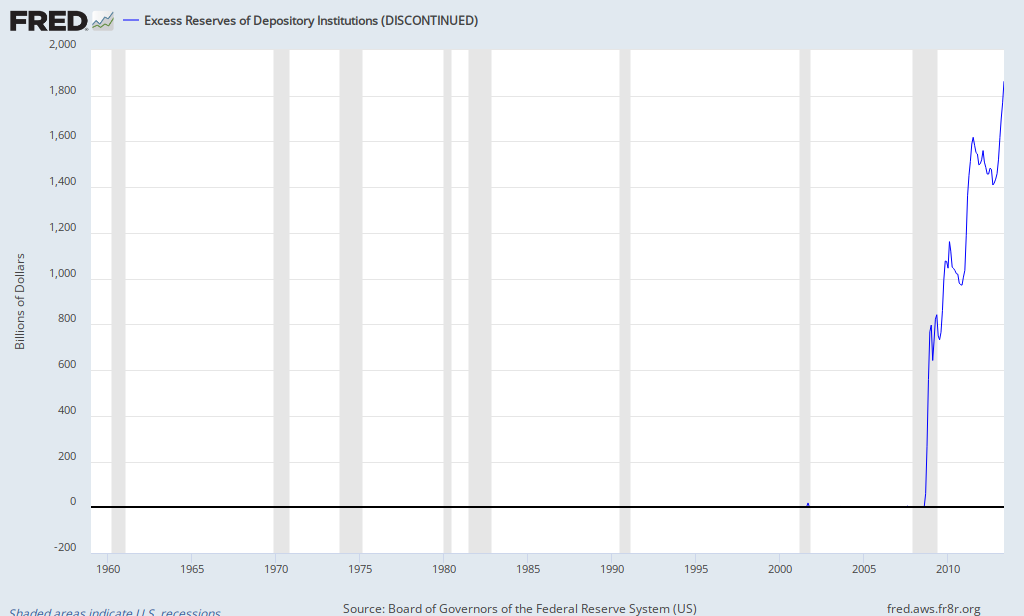- Aug 27, 2008
- 18,450
- 1,823
- 205
Really? The money supply should hold where it is now? As the GDP gets ever larger?
Is deflation a good idea?
It just means that the currency gains in value. I see no problem with that. As for GDP, that's not a very reliable statistic since government spending causes GDP to rise.
It just means that the currency gains in value. I see no problem with that.
So if you borrow $1 million to open a factory and the currency gains 5% in value every year, that's not a problem?
It may give me an incentive to pay back the loan quicker, but no I don't see a problem.


